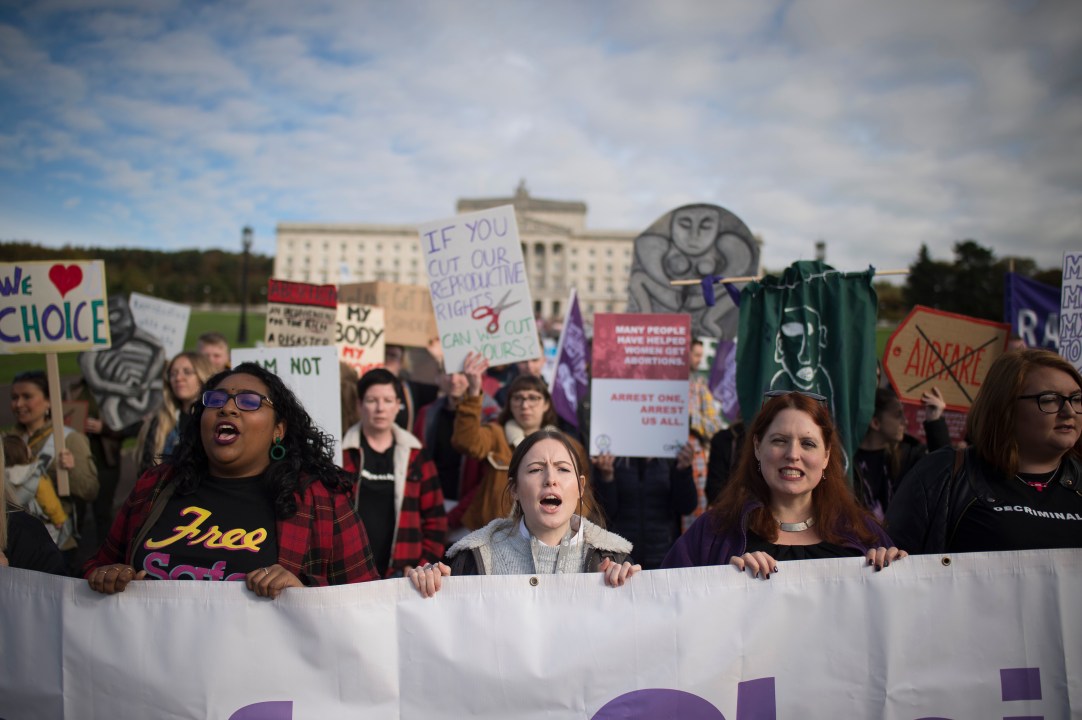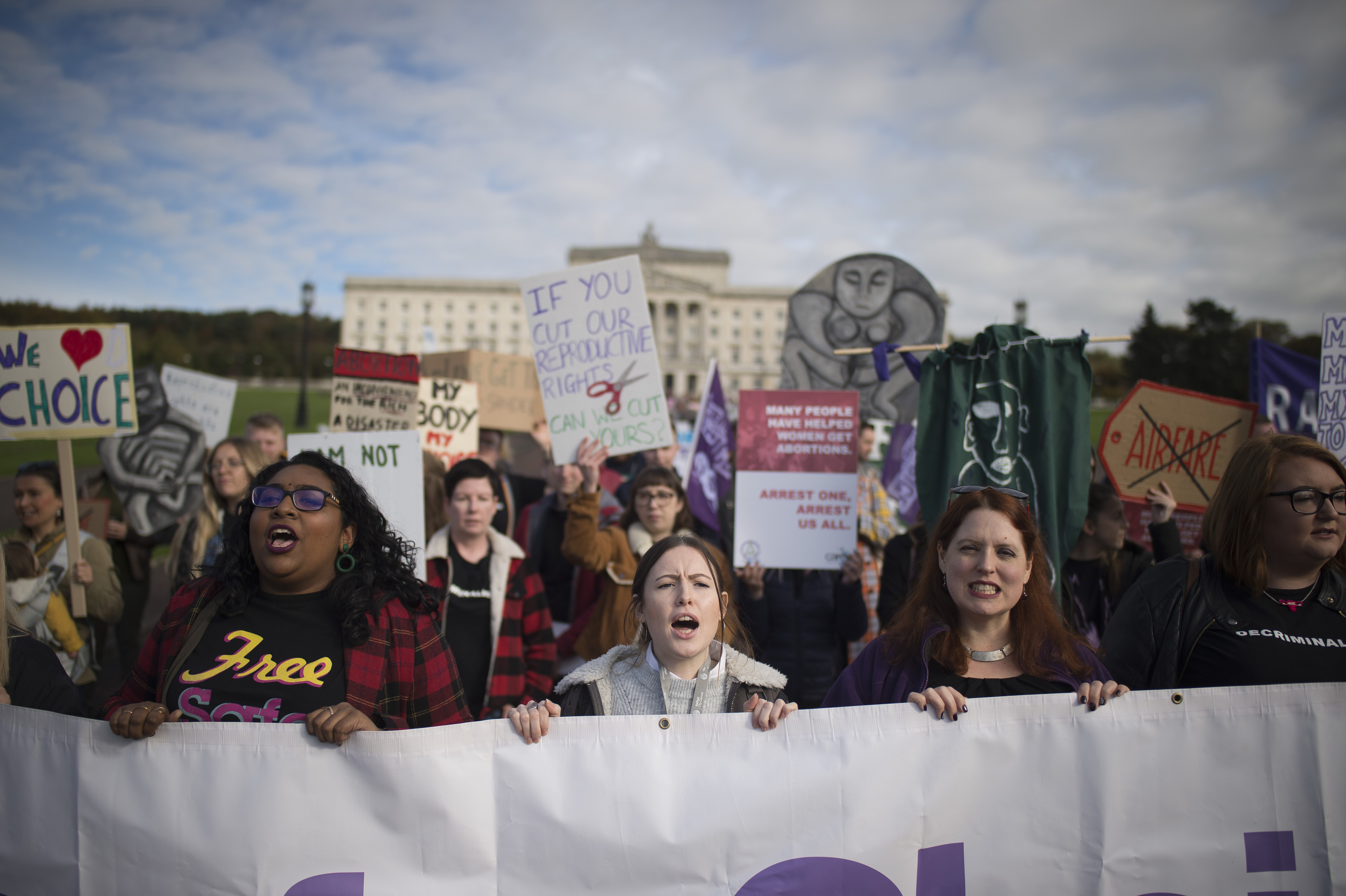There is nothing like abortion to make feelings run high. Termination of pregnancy has been lawful in Northern Ireland since 2020: this year, however, the Legislative Assembly in Belfast turned the screw and passed a further, remarkably authoritarian, Bill. This makes it illegal – anywhere within 100 metres of an abortion clinic – not only to impede access to it, but to do any act ’with the intent of, or reckless as to whether it has the effect of, influencing’ any visitor. In effect, this is the creation of large public zones where, on pain of a £500 fine, no-one is allowed to talk about abortion, hand out leaflets, or even silently pray.
Not surprisingly, the Northern Ireland attorney-general thought the Bill a worrying restriction on freedom of speech and assembly under the European Convention on Human Rights and referred it to the Supreme Court. Equally unsurprisingly, the Supreme Court this morning enthusiastically and unanimously upheld it. It imposed only little restrictions on free speech, the court said; allowed anti-abortion protesters to protest anywhere except the places in which it would be most effective; and protected the privacy rights of those visiting and working in clinics.
Legal decisions are admittedly not the easiest reading. Nevertheless, this one should worry you – whichever side of the abortion debate you take.
First, a surprising proportion of the middle paragraphs is taken up with quotes from UN bodies, the great and the good, and academics (all overtly and strongly pro-choice), saying how awful it is to encounter anti-abortion protestors and calling for their activities to be banned. Of course, any court is entitled to take notice of such materials – even if they do call openly for blanket speech restrictions. But in quantities like this they do rather prejudge the vital question which is whether, despite this, abortion protests deserve free speech protection.
Free speech in Britain was once regarded as a matter of second nature
Second, it shows what many had suspected for some time. Article 10 of the European Convention on Human Rights, the free speech provision, is increasingly being sidelined: one suspects human rights lawyers see it as a bit of an embarrassment, to be hemmed about with as many restrictions as possible.
If you look carefully, the prohibition in this Bill is a lesson in unacceptable restrictions on speech. It is not a crime or public order measure; it is addressed purely and simply at the content of speech. In abortion cordons sanitaires you can express yourself as loudly as you like about anything you like – except any opinion, however mild and well-reasoned, about abortion. (This is unless, of course, you work at the clinic: then the Bill doesn’t apply and you can say what you want.) Nor is it limited to forcible intervention. Any act – praying, ticking off a rosary, or whatever – that is even likely to influence people making what is, after all, an entirely lawful choice is criminalised. It is hard to see this as anything other than a prohibition on speech based on nothing more than somebody else’s preference not to hear it. One might be forgiven for thinking that this was exactly what free speech was about.
Nevertheless, what we take away from the judgment is that free speech is almost a side issue. What matters is not so much free speech as the protection of reproductive rights and the imperative to save those visiting clinics from embarrassment. According to the court, blanket restrictions of this kind are all right because they are only there to protect clinic users’ equal and opposite human right to privacy under Article 8 of the Convention, which under human rights law is of equal force to Article 10. It is hard not to conclude that while the Article 10 right to free speech is to be corralled as far as possible, the right to privacy is expanding like Aesop’s frog (though unfortunately without the final denouement). Although its wording is limited to a person’s right to ‘respect for his private and family life, his home and his correspondence’, in this case it was said – probably rightly as a matter of Strasbourg law – to go much wider and create a right for those using clinics to avoid ‘intrusive public attention’, ‘shaming’ and threats to ‘autonomy’, even while in a public street.
The difficulty here is twofold. One is that, if taken literally, arguments like this could almost gobble up free speech. It is all very well for the ECHR to say (slightly complacently) that free speech much include ideas that offend, shock or disturb: but this gets uncomfortably close to doing the opposite and giving a veto over speech to those likely to be offended, shocked or disturbed.
The other is that Article 8 is itself a requirement of the Convention, which must be applied notwithstanding any unwillingness by electorates to vote for it. Suppose a part of the United Kingdom declined to introduce buffer zones round abortion clinics because it regarded the right to free speech as more important. Would it be in breach of the rights of those using the facilities because they were meant to feel uncomfortable? We hope not, but we can’t be certain.
Free speech in Britain was once regarded as a matter of second nature: you could say what you liked, and if someone else didn’t like it, that was tough. He or she didn’t have to listen. Under the touchy-feely European Convention on Human Rights, however, we are moving towards a situation when free speech is just one value and restrictions on it are seen as readily justified where speech makes others very uncomfortable. This isn’t anything like the English tradition. If we have many more decisions of this kind, one suspects that – whatever Justice Secretary Dominic Raab may say – the movement to leave the Convention lock, stock and barrel may become increasingly forceful.







Comments